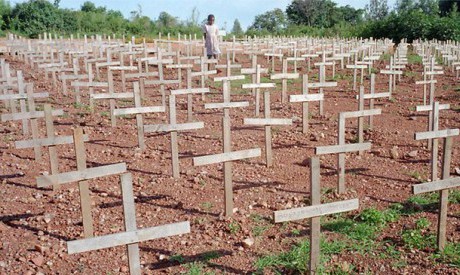Before he fired the shot, the Einsatzgruppe commander lifted the Jewish child in the air and said, “You must die so that we can live.”
As the killing proceeded, other Germans rationalized the murder of Jewish children in the same way: them or us.
Today we think of the Nazi Final Solution as some dark apex of high technology. It was in fact the killing of human beings at close range during a war for resources.
The war that brought Jews under German control was fought because Hitler believed that Germany needed more land and food to survive and maintain its standard of living — and that Jews, and their ideas, posed a threat to his violent expansionist program.
The Holocaust may seem a distant horror whose lessons have already been learned. But sadly, the anxieties of our own era could once again give rise to scapegoats and imagined enemies, while contemporary environmental stresses could encourage new variations on Hitler’s ideas, especially in countries anxious about feeding their growing populations or maintaining a rising standard of living.
The quest for German domination was premised on the denial of science. Hitler’s alternative to science was the idea of Lebensraum.
Germany needed an Eastern European empire because only conquest, and not agricultural technology, offered the hope of feeding the German people.
In Hitler’s “Second Book,” which was composed in 1928 and not published until after his death, he insisted that hunger would outstrip crop improvements and that all “the scientific methods of land management” had already failed. No conceivable improvement would allow Germans to be fed “from their own land and territory,” he claimed.
Hitler specifically — and wrongly — denied that irrigation, hybrids and fertilizers could change the relationship between people and land.
The pursuit of peace and plenty through science, he claimed in “Mein Kampf,” was a Jewish plot to distract Germans from the necessity of war.
“It is always the Jew,” argued Hitler, “who seeks and succeeds in implanting such lethal ways of thinking.” Continue reading
Sources
- The New York Times, from an article by Timothy Snyder, a professor of history at Yale University and the author of “Black Earth: The Holocaust as History and Warning.”
- Image: news.com.au
